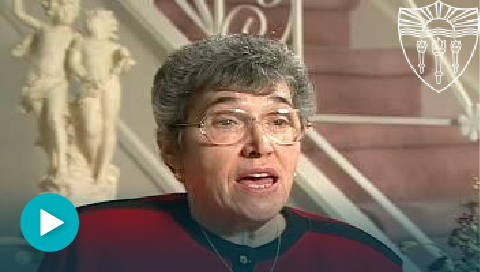This month – National Poetry Month in the U.S. – is a great time to explore just how powerful words can be. When it comes to understanding difficult moments in history, poetry and writing can help students process and express their own thoughts about the world. Explore these three ways you can bring poetry into your classroom using tools from Facing History’s partner, USC Shoah Foundation – The Institute for Visual History and Education.
- Watch: Use testimony to explore how survivors of genocide and mass violence turned to poetry during their darkest times. USC Shoah Foundation’s educational platform, IWitness helps educators access more than 1,500 video testimonies of survivors and witnesses to the Holocaust and other genocides. In the excerpt below, Itka Zygmuntowicz recites the poem she mentally composed while she was in Auschwitz and how the act of composing the poem gave her hope for eventual survival and freedom.
- Think: Using the Writing in Exile activity, challenge your students to sharpen their literary analysis, writing and listening, and communication skills. Through this video-building exercise, students will examine the poetry of Lotte Kramer, a German Jew who was placed on the Kindertransport in 1939. Her writing addresses universal themes of family, identity, and memory while touching upon what it means to be in exile.
- Write: In the Found Poetry – A language Arts Lesson, encourage your students to write their own found poem. This involves actively listening for poetry in existing work, recognizing language that conveys and evokes feelings, distilling it to the most poetic parts, and then formatting it as a poem. Use this activity to help your students connect with key moments, people, and events.
How has poetry helped you connect with history? Do you have other great poetry activities you use with your students? Share them with us!


